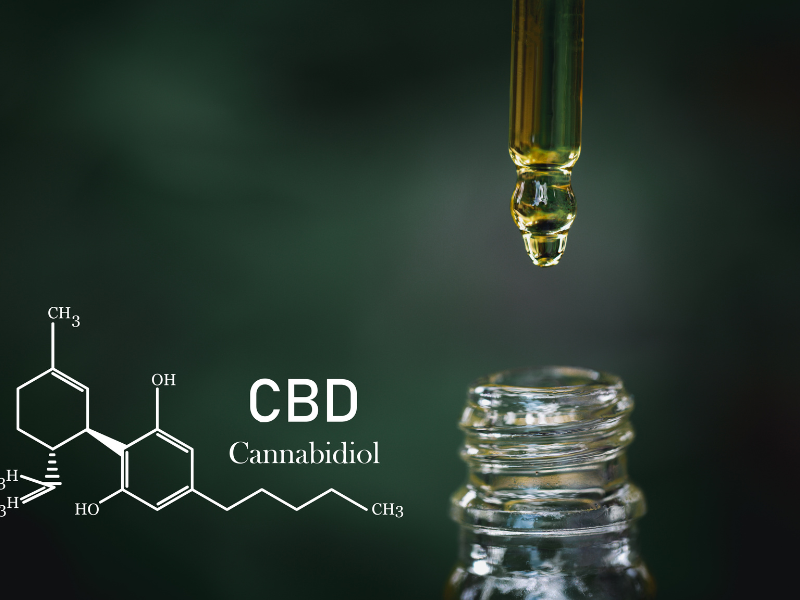


Does using CBD for depression really work? Cannabidiol (CBD) is a natural compound of the class of cannabinoids. It Is found in the Cannabis sativa plant, the leaves and flowers. It can be called hemp or marijuana based on the level of tetrahydrocannabinol (THC) the product contains. The difference between CBD and THC is that CBD doesn’t have the ‘high’ psychoactive effects as marijuana does.
Research states that CBD oil and other CBD products may prove beneficial for the symptoms of depression. This discovery has led to increased consumption of CBD. Find out more about it here in this article.

Cannabinoids affect the normal endocannabinoid system of the body. This system regulates the processes already occurring in the body. Cannabinoid binds mainly to the cannabinoid 1 receptors inside the body. The Endocannabinoid system plays a role in CNS. It regulates mood and thinking. It also mediates reaction to various endogenous and exogenous substances. CBD also balances catecholamines in the body. This balance is vital to maintaining the proper functioning of the mind and the body.
Many studies in animals have evaluated the effectiveness of CBD for depression. There are various mechanisms by which CBD alters the conditions of the body. Some of them are:
Serotonin directly links depression and affects emotion, stress, and mood. Low levels of this hormone exacerbate the symptoms of depression. CBD indirectly interacts with serotonin receptors in the brain. In this way it reduces the symptoms of depression. This provides the scope of its use as an antidepressant and anti-anxiety drug. Although it doesn’t act as serotonin directly, the compound can be used without fear of addiction.
Studies have also shown that CBD reduces the stress associated with daily life. This is particularly useful for people with depression since they have a reduced ability to cope with stresses.
CBD can also control panic attacks and other symptoms of depression. Panic attacks and panic disorders can be common co-occurring diseases with depression. You can get relief from these by using CBD.


CBD reduces the anxiety associated with depression as evidenced by studies. Researchers did test on human models using public speaking as the main trigger of anxiety. Public speaking increased anxiety levels and the person became more susceptible to stressors. The tests showed positive results of lowered anxiety levels with CBD.2 CBD can thus help depressive patients with anxiety attacks and nervousness.
Case-based studies have shown that CBD may also help people fall asleep and stay asleep. People with depression may have insomnia due to a psychoactive state. Insomnia can also be due to disturbing thoughts. Therefore, CBD helps depressive patients to have a better quality of sleep. It calms thoughts and soothes the mind.
Animal based studies have suggested that CBD can help in lowering pain. It lowers inflammation associated with arthritis when applied topically. CBD also inhibits inflammatory and neuropathic pain. The neuropathic pain also may go along with depression. Various disease conditions causing pain also lead to depressive states. So CBD has a dual role in mitigating pain and reducing depression.

CBD is generally considered safe for use. Like other medicines, it can, however, cause side effects. Some include dry mouth, diarrhea, fatigue, low blood pressure, and drowsiness. Avoid using CBD if taking medicines that affect the liver. Pregnant and lactating women should also not use CBD. The minimal side effect profile and pleiotropic benefits serve both the body and the soul.
Unlike other medications commonly used for depression, CBD has a faster onset of action. It can provide a sustained level of antidepressant effect. In addition, impairments like sexual dysfunction, mood swings, and agitation are less likely to occur due to CBD. Other antidepressants commonly cause these side effects.
Although CBD provides a faster onset and sustained effect, CBD cannot substitute prescribed anti-depression medications. Discontinuing prescription medicines abruptly can potentiate more significant side effects. If you want to change medications from typical antidepressants to CBD, consult your doctor. He/She can help you taper off and adjust your medications.
CBD is available in various forms such as oils, vapor, nasal sprays, capsules, edibles, and creams. However, CBD oils are the most commonly consumed form of the drug. Placed the oils under the tongue or mix them with other liquids.

CBD does not act completely as serotonin and indirectly acts on the serotonin receptors inside the brain. Due to this, CBD use doesn’t cause addiction. However, if you’re consuming CBD products, they may contain THC in some amount. This may cause addiction as THC tends to cause dependence and can make you high.
It’s essential to find a reputable seller who sells the best quality CBD. Hemp-derived CBD is easy to access because it contains more CBD than THC, making it effective but less addictive. Unfortunately, Marijuana-derived CBD is available only in certain areas. These areas don’t declare marijuana illegal. As marijuana has more THC, this increasing its abuse liability.
All the above discussion on CBD validates the use of Cannabinol for mitigating the symptoms of anxiety, depression, and stress. Its effect on the catecholamines and endocannabinoid system mediates the antidepressant effects. However, using CBD for depression does not replace using anti-depressive medications as prescribed by physicians. CBD plays an additive role. CBD is safe to use since it is commonly obtained as Hemp-derived CBD, which has little tendency to cause addiction.
Crippa JA, Guimarães FS, Campos AC, Zuardi AW. Translational investigation of the therapeutic potential of cannabidiol (CBD): toward a new age. Frontiers in immunology. 2018;9:2009.
P Soares V, C Campos A. Evidences for the anti-panic actions of cannabidiol. Current neuropharmacology. 2017;15(2):291-299.
Shannon S, Lewis N, Lee H, Hughes S. Cannabidiol in anxiety and sleep: a large case series. The Permanente Journal. 2019;23
Hammell D, Zhang L, Ma F, et al. Transdermal cannabidiol reduces inflammation and pain‐related behaviours in a rat model of arthritis. European journal of pain. 2016;20(6):936-948.